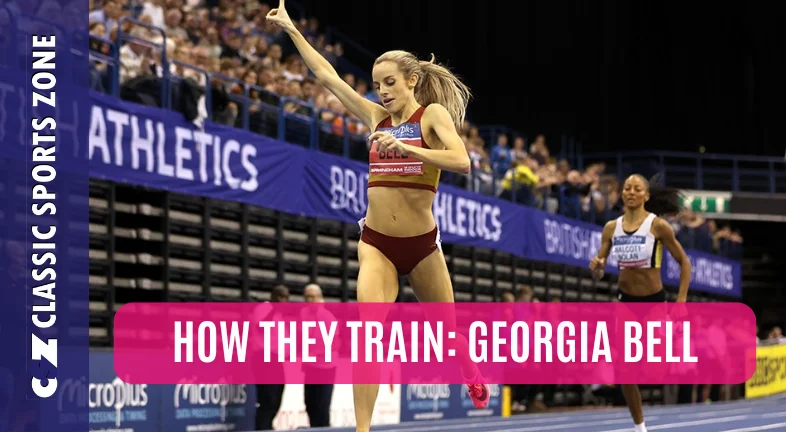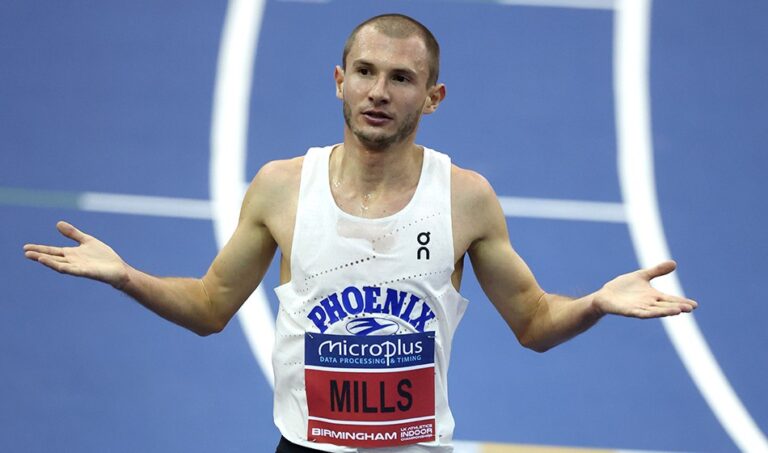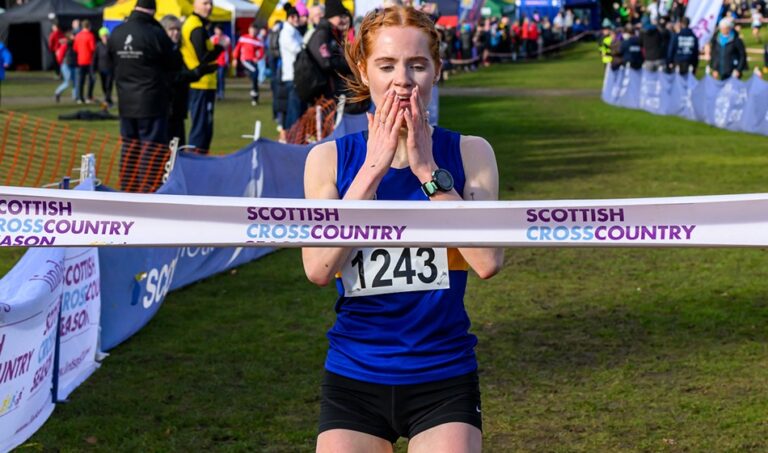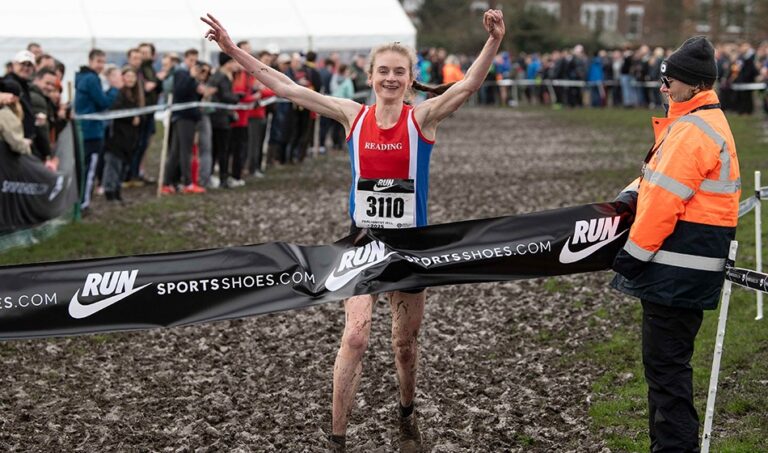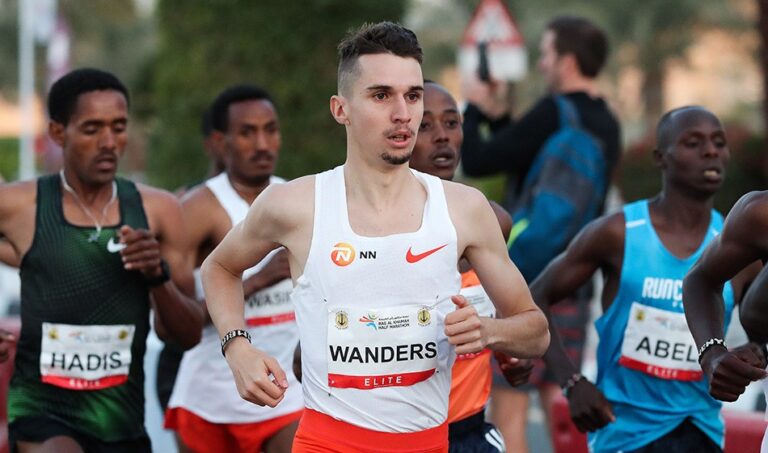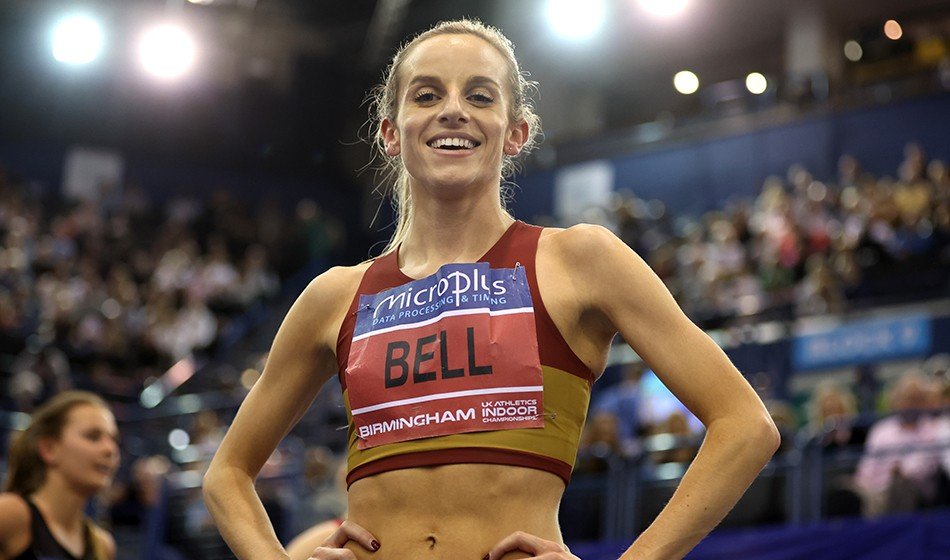
To the home crowd, Georgia Bell had achieved a remarkable feat. From relative obscurity – or so it would seem to the majority, at least – the 30-year-old had just finished fourth in the women’s 1500m final at the World Indoor Championships.
Yet it wasn’t a huge surprise to those who had been following her progress over the winter. The British indoor champion had arrived in Glasgow unbeaten in 2024 and had lowered her personal best from 4:16.21 to 4:03.22 in 18 months. To some, including Bell herself, she was a serious medal contender.
“Overall, I have to be happy with the result and the experience, but to just miss a medal … I know I was capable of it, so that’s a little bit gutting,” she reflects. “I’d hoped at the very least it would be a fast race so that we’d run the Olympic qualifying time [4:02.50] and we just missed that as well, so from an outcomes perspective I was hoping for a little bit better, but I am really proud of how far I’ve come.”
To set such ambitious goals in her first major championship says a lot about Bell and the remarkable progress she’s made since her return to the sport. An athlete who has experienced both joy and misery in athletics, she is not one to do things by halves.
Georgia Bell (Getty)
Crowned English Schools 800m champion in 2008, the podium soon became familiar territory. She enjoyed success as a student at the University of Birmingham where she ran PBs over 800m (2:03.38) and 1500m (4:16.96). She endured the frustration of inconsistency when she moved to the University of California, Berkeley, spending more time on the sidelines than the track. Rather than fight the relentless cycle of injury and rehabilitation, she chose to step away.
Bell made a gradual return to running throughout 2022, balancing training with a full-time job in cyber security. Boosted by significant miles on the bike (Bell won the women’s age-group title at the 2023 World Duathlon Championships) and a combination of parkruns and British Milers’ Club meetings, she clocked her quickest 1500m since 2015.
With growing confidence and expectation, she called her former coach Trevor Painter in early 2023 and presented an exciting proposition. “I just said: ‘If I could do that on my own what could we do if we work together?’” she recalls.
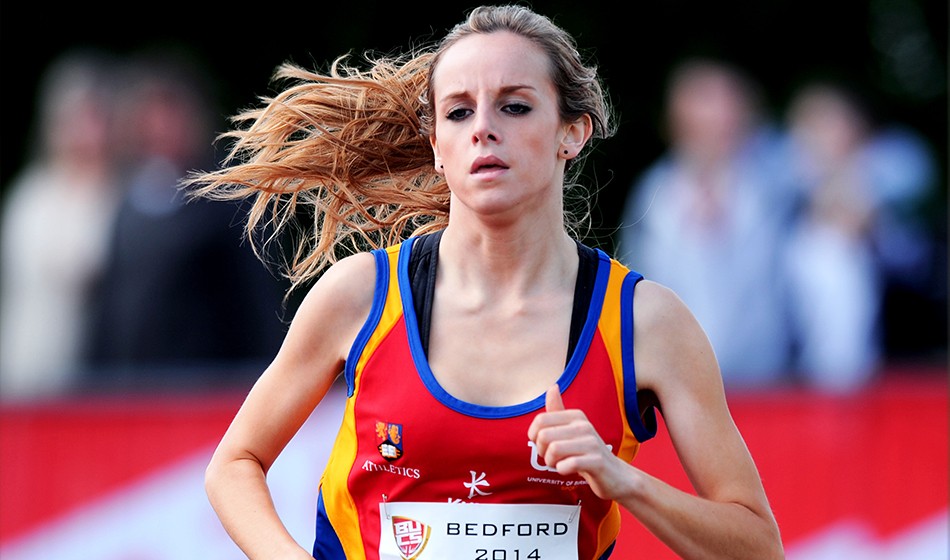
Georgia Bell in 2014 (Mark Shearman)
Painter had previously described Bell as “the one that got away”. This time it’s different. “I think because I’m a little bit older and I’m going to them [Painter and his wife and fellow coach Jenny Meadows] even though I have a job, I’m doing the running because I want to, I think they see that as me taking it seriously,” says Bell. “I’m giving up my free time and I’m training on my own. They know I’m committed, so they’re willing to give that commitment back.”
Reward for her recent indoor achievements has come in the form of a Nike contract which, all being well, will enable her to take a sabbatical from April until September and focus fully on running ahead of an Olympic summer.
Bell now has designs on achieving the Olympic 1500m qualifying standard as early as possible “just to get that done”. A question mark remains over her untapped 800m potential, but with plans to take on the two-lap event ahead of the British trials, she’s keeping her options open.
“I think 1500m is the best distance ever,” she says. “It’s so much fun, it’s got tactics, it’s got speed, it’s got endurance … but I’m really excited to run the 800m this summer and to see what I can get to.”
Bell’s training week is made up of around 100 miles of cycling and 25-30 miles of running.

Georgia Bell in 2008 (Mark Shearman)
While her Nike contract and pending sabbatical present an opportunity to increase her strength and conditioning and to run more, her US collegiate experience taught her that high mileage isn’t for everyone: “I was doing around 50 miles/week and I was constantly dealing with issues. I was in a boot for a lot of that time, I had bad shin splits and stress fractures, and I just think that whenever I go above 30 miles per week now I still feel really uneasy that something is going to pop up again,” she says.
“I think a huge part of why I’m running well now is because I’ve had years of consistency and no injuries, so I’ve just had building blocks. There might be an opportunity to increase my mileage in the future, but right now I’m really happy keeping it as it is.”
Monday: (am) 6-7 miles before work (easy); (pm) one hour indoor bike workout with intervals (Zwift)
Tuesday: road session in Battersea – around 10 miles total including warm-up/cool down e.g., 5min-4min-3min-2min x 3
Wednesday: rest day
Thursday: (am) solo track session before work e.g., 1200m time trial followed by 300s and 200s plus warm-up/cool down; (pm) Zwift race representing Wahoo Le Col elite racing team: “It’s really fun and it’s really physically hard,” says Bell. “The way I feel after a Zwift race is harder than I feel after a running race. It hurts so much. I’m really pushing myself to the extreme, but it’s also quite fun because it’s competitive in a different way.”
Friday: easy run (around 30min/5 miles) and light weights at home: “I’ll be adding in strength and conditioning when I have more time,” she says. “I’m really looking forward to that as it’s something I don’t really have in my training at the moment, so it could make a big difference.”
Saturday: hard track workout e.g., time trial followed by 300s and 200s. This will be more intense than Thursday’s session: “Something where I know I’ll be going all out,” says Bell.
Sunday: 100km bike (3-4 hours on the roads)
Favourite session: “I love short hill sessions, e.g., 30-second reps. On the track I really like 300m reps off short recovery e.g., 45 seconds. That’s when I know I’m fit, when the 45-second recovery feels like two minutes, I love that feeling.”
Worst session: “It’s what Trevor calls a ‘gears’ run; it’s usually an hour run where you’re changing to different gears throughout it. The last 10 minutes of those runs are brutal.”


